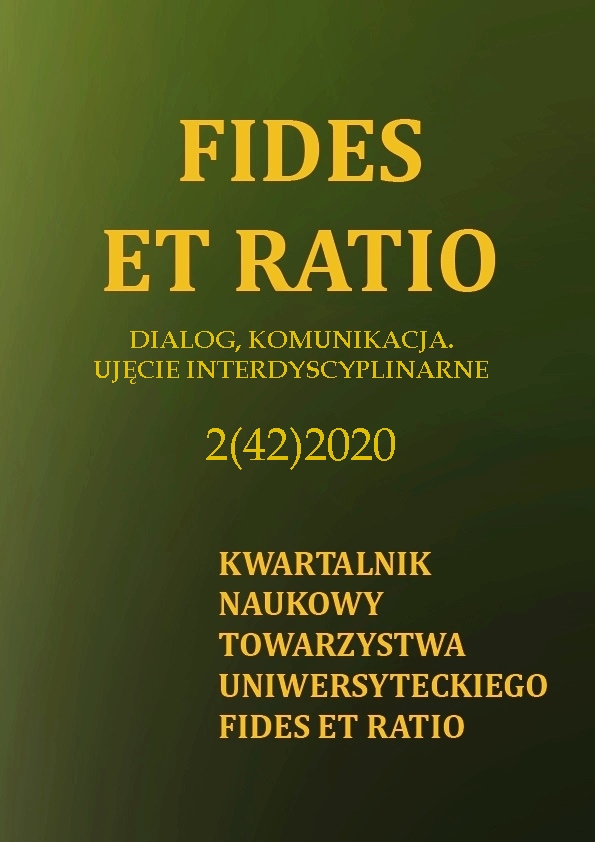Abstract
Peer-teaching is an underestimated form of support for the development of children and young people in the peer group. From the point of view of communication theory, it is a complex form of communication between peers, which results in teaching and education – the phenomena traditionally attributed to parents, educators and teachers. The paper is an attempt to review the knowledge of peer tutoring and the paradigm of communication theory. The historical outline of the concept of peer-teaching and its characteristics have been discussed and described in the paradigms of the interpersonal communication theory.
References
Borsch, F. (2010). Kooperatives Lehren und Lernen im schulischen Unterricht. Stuttgart: Kohlhammer Verlag.
Bruffee, K. (1972). A Short Course in Writing: Composition, Collaborative Learning, and Constructive Reading. London/New York: Pearson.
Brzezińska, A.L., Appelt, K., Ziółkowska, B. (2015). Psychologia rozwoju człowieka. Sopot: Gdańskie Wydawnictwo Psychologiczne.
Butcher, J.N., Hooley, J.M., Mineka, S. (2018). Psychologia zaburzeń. Przeł. S. Pikiel, A. Sawicka-Chrapkowicz. Sopot: Gdańskie Wydawnictwo Psychologiczne.
Fantuzzo, J., Ginsburg-Block, M. (1998). Reciprocal peer tutoring: Developing and testing effective peer collaborations for elementary school students. W: K. Topping, S. Ehly, (red.), Peer assisted learning (ss. 121-144). Mahwah; NY: Erlbaum.
Fuchs, D., Fuchs, L. S., Mathes, P. G. & Simmons, D. C. (1997). Peer assisted learning strategies: Making classrooms more responsive to diversity. American Educational Research Journal, 34(1), 174– 206.
Fuchs, D., Fuchs, L.S., Mathes, P. G., Martinez, E.A. (2002). Preliminary evidence on the social standing of students with learning disabilities in PALS and No-PALS classrooms. Learning Disabilities Research & Practice, 17(4), 205 – 215.
Gibbs, J.C., Potter, G.B., Goldstein, A.P. (1995). The EQUIP Program: Teaching Youth to Think and Act Responsibly Through a Peer - Helping Approach. Champaign, IL: Research Press.
Gillespie, P., Lerner, N. (2007). Longman Guide to Peer Tutoring. London: Pearson.
Harper, G., Mallette, B., Moore, J. (1991). Peer-mediated instruction: Teaching spelling to primary schoolchildren with mild disabilities. Journal of Reading, Writing, & Learning Disabilities International: Overcoming Learning Difficulties, 7 (2), 137–151. doi:10.1080/0748763910070205.
Hasselhorn, M., Gold, A. (2009). Pädagogische Psychologie. Erfolgreiches Lernen und Lehren. Stuttgart: Kohlhammer Verlag.
Jan Paweł II, św. (1991). Przemówienie do katechetów, nauczycieli i wychowawców. Włocławek 6 czerwca 1991r. https://idmjp2.pl/index.php/pl/jan-pawel-ii/artykuly-o-janie-pawle-ii/1339-jan-pawel-ii-do-nauczycieli-wychowawcow-katechetow (dostęp: 07.05.2020).
Johnson, R.T., Johnson, D. W. (1994). An overview of cooperative learning: A practical guide to empowering students and teachers. W: J.S., Thousand, R.A., Villa, A I., Nevin (red.), Creativity and collaborative learning (ss. 31-44). Baltimore: Brookes Press.
Kerr, D.W. (2014). The Instructional Skills Program: A Peer-based Forum for Improving Teaching and Learning. Victoria: Reciprocity Publishing.
Laugeson, E.A. (2014). The PEERS Curriculum for School-Based Professionals. New York: Routledge.
Mazur, E. (2017). Peer Instruction: Interaktive Lehre praktisch umgesetzt. Berlin: Springer Spektrum.
Newton, F.B., Ender, S.C. (2010). Students Helping Students: A Guide for Peer Educators on College Campuses. San Francisco: Jossey-Bass.
Ogonowska, A. (2019). Komunikacja i porozumienie. Sztuka bycia razem, tworzenia więzi i rozwiązywania konfliktów. Kraków: Wydawnictwo Edukacyjne.
Philipp, M. (2010). Lesen Empeerisch: Eine Längsschnittstudie zur Bedeutung von peer groups für Lesemotivation und -verhalten. Wiesbaden: VS Verlag für Sozialwissenschaften.
Przetacznik-Gierowska, M., Tyszkowa, M. (2011). Psychologia rozwoju człowieka. Zagadnienia ogólne. Warszawa: Wydawnictwo Naukowe PWN.
Referda, M. (2019). Zdolności a porażka szkolna. Jaką rolę odgrywa osobowość? Toruń: Adam Marszałek.
Riegler, P. (2019). Peer Instruction in der Mathematik: Didaktische, organisatorische und technische Grundlagen praxisnah erläutert. Berlin: Springer Spektrum.
Rohr, D., den Ouden, H., Rottlaender, E.M. (2016). Hochschuldidaktik im Fokus von Peer Learning und Beratung. Weinheim und Basel: Beltz Juventa.
Rüf, R.L. (2015). Coaching und Peer-Mediation in der Schule: Chancen und Herausforderungen. Saarbrücken: Akademikerverlag.
Sanders, J., Damron, R.L. (2017). "They're All Writers": Teaching Peer Tutoring in the Elementary Writing Center. New York: Teachers College Columbia University Press.
Sanft, M., Jensen, M., McMurray, E. (2007). Peer Mentor Companion. Belmont: Wadsworth Cengage Learning.
Schrumpf, F., Crawford, D.K., Bodine, R.J. (1997). Peer Mediation: Conflict Resolution in Schools: Program Guide. Champaign, IL: Research Press.
Sipowicz, K., Pietras, T. (2017). Wprowadzenie do pedagogiki inkluzyjnej (włączającej). Wrocław: Wydawnictwo Continuo.
Słotwińska, H. (2019). Wychowanie chrześcijańskie szansą integralnego rozwoju człowieka. Studium z pedagogiki religii. Kraków: Oficyna Wydawnicza Impuls.
Szmatka, J. (2007). Małe struktury społeczne. Warszawa: Wydawnictwo Naukowe PWN.
Topping, K., Buchs, C., Duran, D., van Keer, H. (2017). Effective Peer Learning: From Principles to Practical Implementation. New York: Routledge.
Trempała, J. (2011). Psychologia rozwoju człowieka. Warszawa: Wydawnictwo Naukowe PWN.
Van Note Chism, N. (2007). Peer Review Teach: A Sourcebook. Bolton: Anker Publishing Company.
Wagner, L. (1982). Peer Teaching: Historical Perspectives. Westport: Greenwood Press.
Wasilewski, B.W., Engel, L. (red.) (2011). Grupowy trening balintowski. Teoria i zastosowanie. Warszawa: Eneteia.
